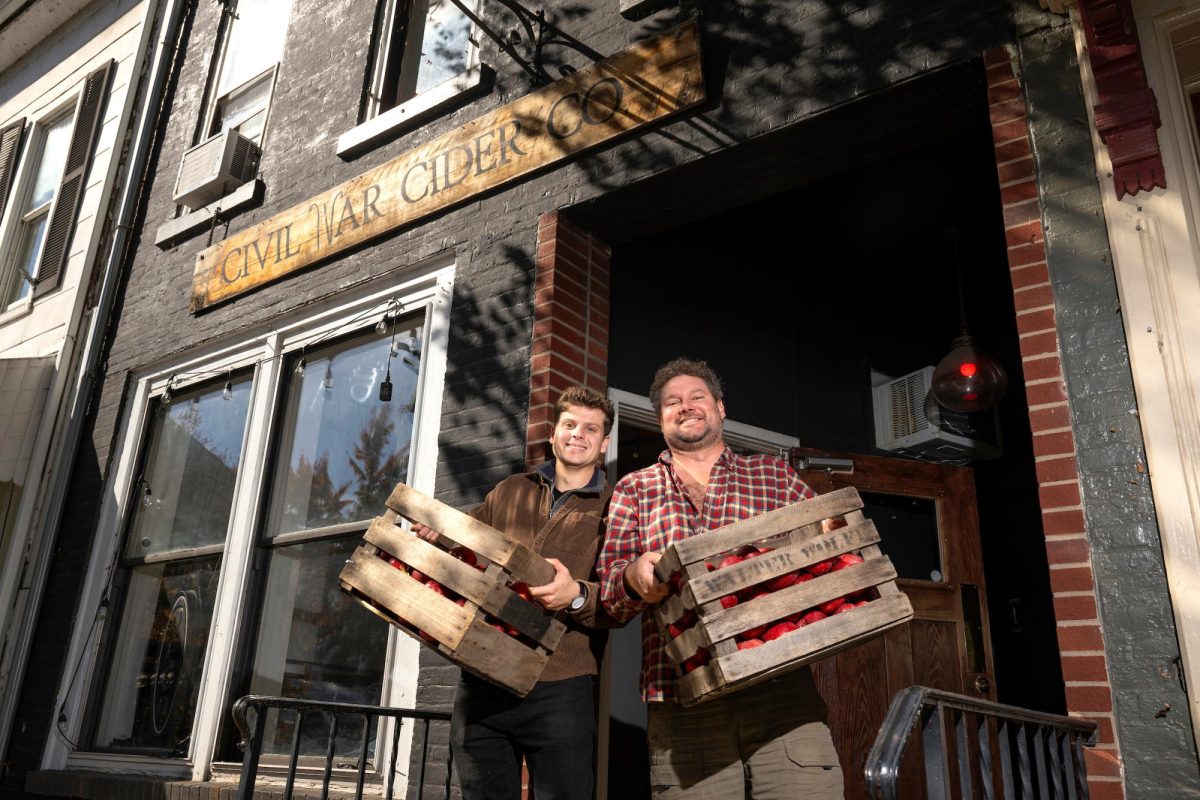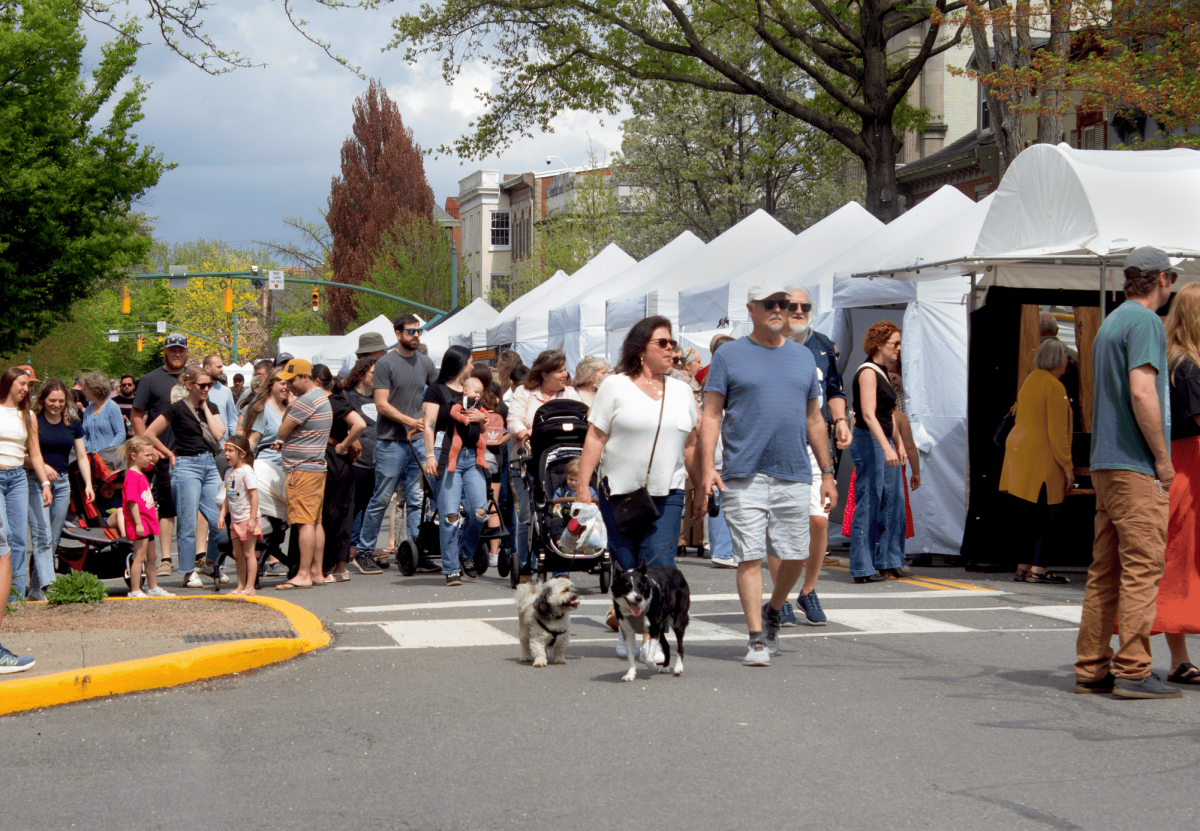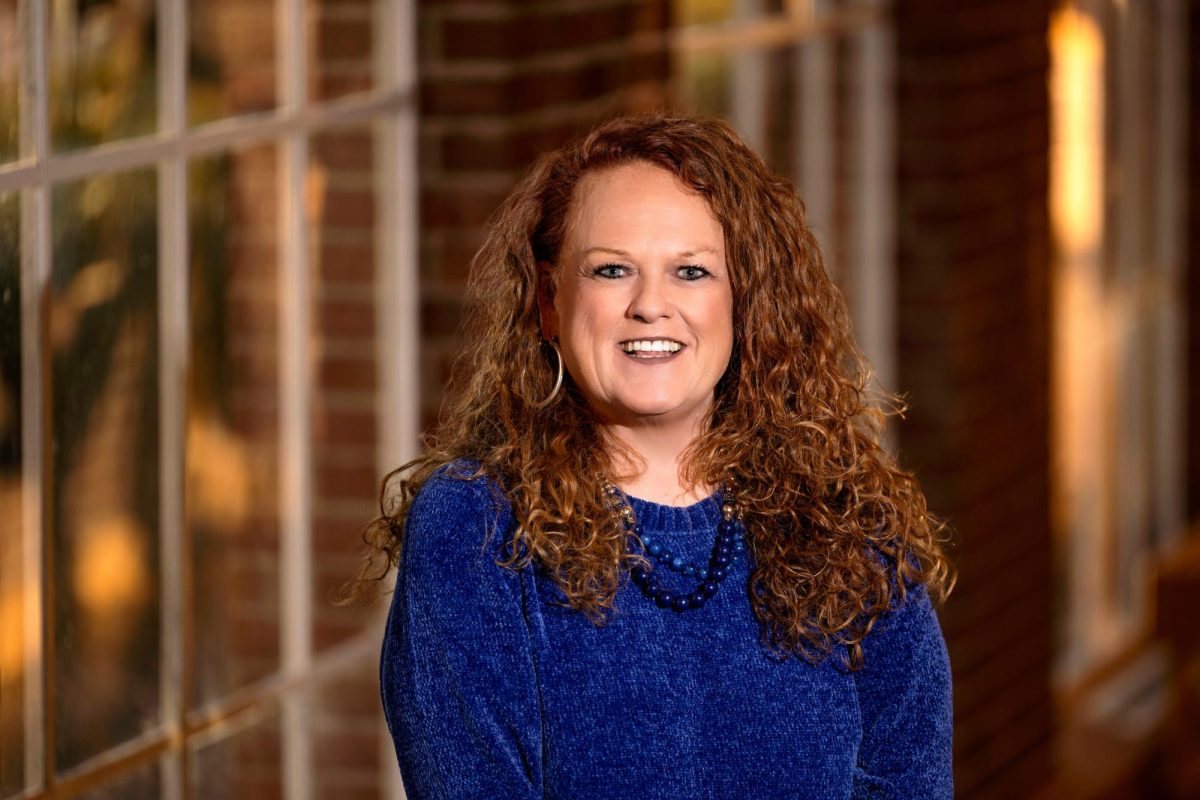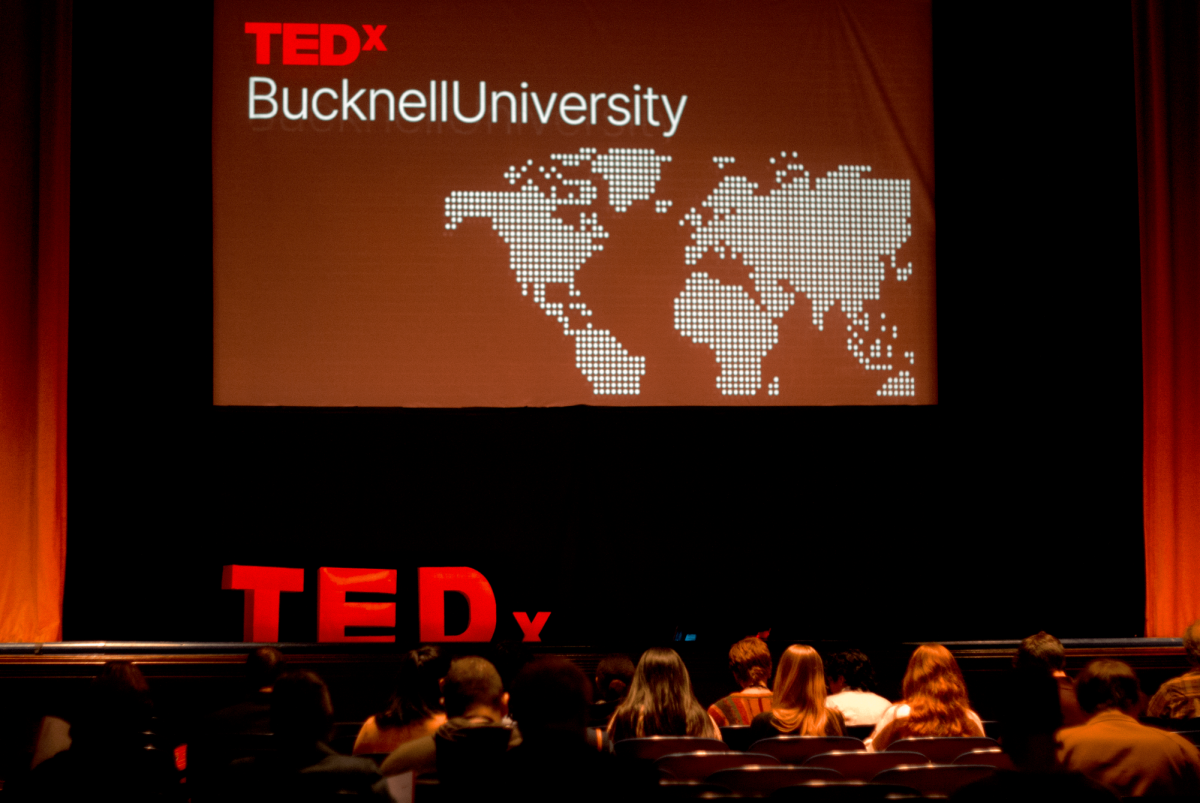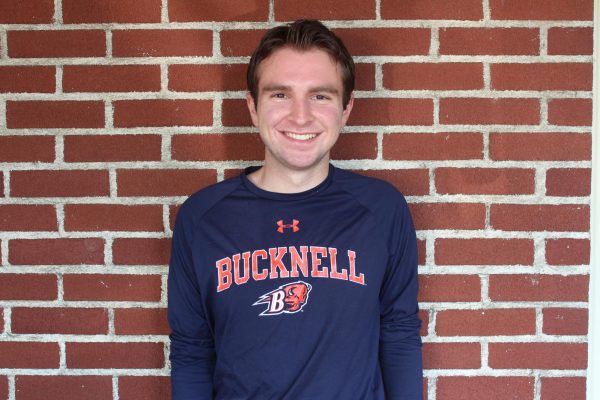Ben Fink ’24, Environmental Studies, is helping a local Lewisburg business reduce waste by creating and marketing a sustainable product, utilizing the experience he gained in an internship in Australia. In collaboration with Civil War Cider, a local artisanal hard cider producer, he’s developed a hard cider made from “ugly fruit”—produce that would otherwise be thrown out because it’s not pretty enough to be sold in the grocery store.
The project considers every environmental impact, from emissions produced by collecting fruit at local orchards to how much energy the storage freezer uses. “The project is circular, which means that nothing will be wasted,” Fink says.
His process is informed by connections he made working at Four Pines Brewing Company during a study abroad experience in Australia. During the first half of the semester, he took classes at Byron Bay, a beach-based town, and during the second, he secured an internship with Four Pines. He pursued the position because he admired their commitment to craft brewing, giving back to the community and caring for the planet.
During his internship, Fink researched sustainable brewing processes and developed a proposal to use ugly fruit in a beverage. He concluded his time there by pitching the project to the CEO and manager. For now, the project is on hold at Four Pines, but Fink continues to collaborate with and receive advice from his mentors in Australia.
Back in Lewisburg, Fink wanted to continue to use his newfound knowledge in the sustainable beverage industry to develop a local ugly fruit cider. His mentor, Associate Professor of Environmental Studies and Sciences Andrew Stuhl connected Fink with Rob Antanitis, the owner of Civil War Cider in downtown Lewisburg. Antanitis was eager to accept Fink’s proposal and experiment with his cider production, and Fink began researching cider and sourcing sustainable materials for brewing. “I’ve always loved supporting small businesses because it feels like you’re directly impacting someone’s life in a positive way,” Fink says.
Fink has made no shortage of positive impacts on the planet and in the Lewisburg community during his time at Bucknell. He co-founded Epsilon Eta, an environmental honors society, interned at the Office of Campus Sustainability and served on Bucknell Student Government’s Sustainability Committee.
Now, he’s committing more than 15 hours a week to working on the cider project. “Professor Stuhl gave me the idea of applying for an independent study,” Fink says. “That means I’m able to get course credit, and I can use all the resources I have as a Bucknell student to help with this project.”
Antanitis and Fink recruited help from the Bucknell Small Business Development Center (SBDC) to market the product and design the label. Abigail Kates ’24, a Markets, Innovation & Design major who manages marketing for the SBDC, helped brainstorm the name—Misfit Mashup Hard Cider—and design the recyclable cans depicting a cartoon apple and pear affectionately named Benjie and Robbie.
“Connecting with Ben has been really great because an ugly fruit cider is something I never would have thought of,” says Antanitis, who started brewing cider 15 years ago with his father. “Experimenting with ugly apples, peaches, plums and pears has been a learning experience. Now that we’re using all these different fruits, it’s exciting to learn about what the processing requires, and it’s teaching me things I’ll be using in future projects.”
Fink and Antanitis will release Misfit Mashup Hard Cider at Civil War Cider on Friday, Dec. 1, during an event open to the community from 3–8 p.m. In the spring, they plan to begin another sustainable experiment—ugly fruit beer—in collaboration with Milton Brewery Partners.
“Going to Bucknell has given me the ability to have this experience in Australia and bring it back to campus and to Lewisburg,” Fink says. “I want to help form an ongoing relationship between Rob, Bucknell’s environmental studies & sciences department and the SBDC so students can be involved in making a conscious drink that supports our regional economy. This project was possible through the collective efforts of many people who wanted to do good for the community and the environment.”



















